There are many emerging female leaders in Nigeria, young women who are breaking boundaries, against all odd, to make their voices count. Ikanna Okim is one of them. A phenomenal woman, she believes she is equipped with everything needed to make a difference in the world. Ikanna is the movement leader of the No-FGM campaign against female genital mutilation in Akwa Ibom State communities where the practice is rampant. A student leader, she is currently the President of the LAWSAN Bar Association, University of Uyo Chapter. Teennation Country Lead for Nigeria and Head of Legals, Ikanna is a prolific writer and has authored five books, which have reached over 1,400 young people in Nigeria. As a result of her commitment to correcting social ills, she was conferred the honour of a Fellow of the African Young Leadership Fellowship in 2018 and in 2020, she made it to the nominee list of Community servants in Akwa Ibom State. She also acquired certifications from different institutions around the world, including University of Sheffield, United Kingdom, Negotiation studies certificates from University of California, Irvine Extension, and Yale University. A child of God and a preacher of the gospel of Jesus, her life principles are integrity, responsibility, and transparency. She shares her inspiring journey in this interview.
Growing Up
I tell people that if everyone was raised in my home, they may never get to see the sad realities of gender inequality existent in the world today. I was brought up in an African home of average social class. My dad is an ace journalist and my mum is a civil servant. We live in Lagos, Nigeria. I have a sister and a brother and my parents never made us feel like we were different – I mean the girls from the boy. I grew up with confidence, more confidence than my peers in school and church. My dad, especially, made me know that I could be anything at all that I wanted to be. My brother could wash plates and I would be trying to fix a bulb. No gender roles. I always came out first right from nursery school as much as I can remember. I never was intimidated by the boys in my class. I could argue with my dad on an issue. I was allowed to have a different opinion.
This is to say that my upbringing gave me zero preparation for the realities outside. Imagine the shock I had to see that the world thinks I’m a second-class human because I am a woman. I was shocked. I once got into a public bus when I went to Uyo for my tertiary education and I came down for a man to enter inside because my bustop was close by – just the next actually. The man became furious. He made a statement I can never forget. When people were begging him to just enter so we could move. He said “God forbid that I would sit inside for a woman, a small girl for that matter”. Wow. You can imagine. I have had many more sad experiences like that.
I can however say that my upbringing helped me develop an unshakeable confidence in myself and I gladly pass it on to other women who did not have the opportunity to grow up with the confidence I grew up with. This makes me feel like a woman on a mission. Other women have to come out of their shells and show the world the stuff they’re made of.
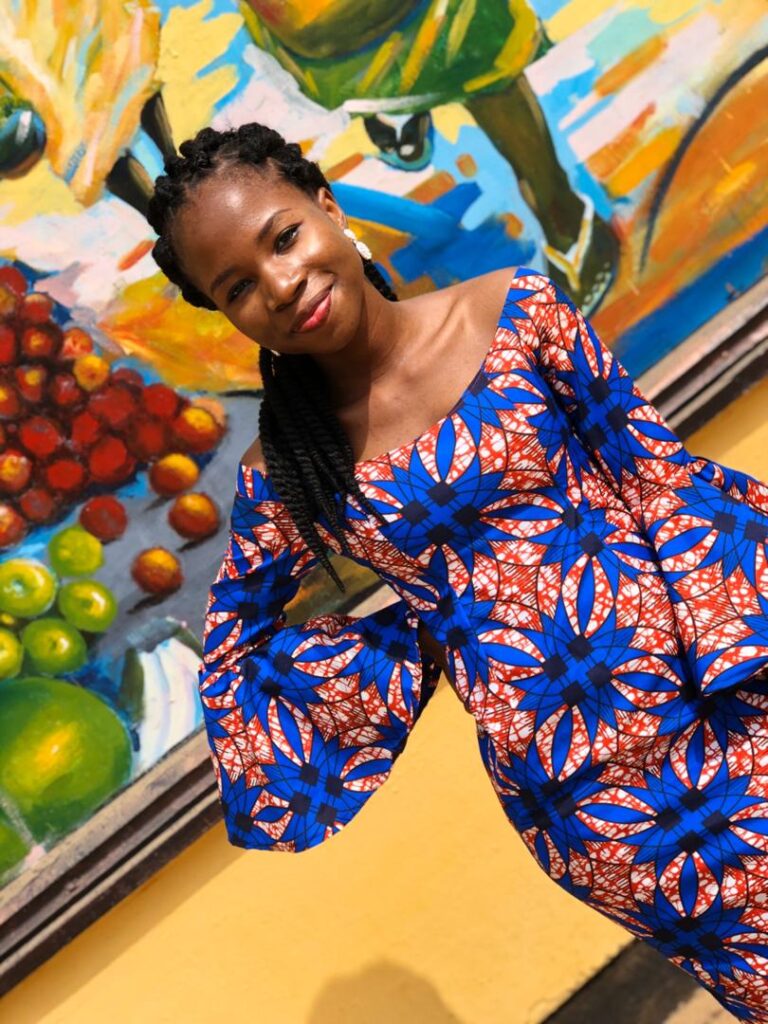
Inspiration behind NO-FGM campaign
I generally started having detestation for violence against girls from 2016 when I founded Fingerprints Group to engage my peers and help them build capacity to fight social issues. We evolved into doing projects concerning the girl child in secondary schools. We went from teaching girls confidence to teaching them how to defend themselves against rape through our #SheDefence series in 3 states in Nigeria. While interacting with these girls, I met girls who were circumcised in cities like Lagos! I could not sleep! The whole genitalia area off! In this time and age! Ha.
I felt heartbroken. Those conversations drove me to make more inquiries and to my shock, people in Uyo local government of Akwa Ibom state, where I am from and where I school, still mutilate their girls. I also discovered that it is still being practised in Oron, Uruan and Itu local governments of the same state in Nigeria.
It is true that the rate of female genital mutilation has reduced in Africa as compared to the situation in ancient times but that is not enough. That it is still being practised, despite laws prohibiting it, is a problem.
I needed people to first come to the realisation that this practice of female circumcision is still going on. By my research, it is prevalent among illiterates in Nigeria and the illiterate population in Nigeria is about 40%. So, you can imagine what these people do to their daughters.
I saw a need to get words out there to those people who do not read or write English, in the languages they understand that Female Genital Mutilation is evil.
Yes, we have many laws which prohibit female circumcision but how can one implement the laws? It is impossible to go round from house to house to tell girls “open your legs, let’s see whether you have been mutilated”. If you’re waiting for the victims to report, that’s far from possible because they don’t even realise that they’re victims in the first place. The custodians of a culture cannot report it. Also, the effect of the laws would only punish offenders and do little to prevent it. I saw that the solution to this problem is a mindset shift. I needed to help people think and see for themselves that they were killing their daughters.
That’s how I formed a team and took to the streets and market places to preach the No-FGM gospel. I also wrote and published a prose fiction to keep driving this conversation around the world and make people know that girls in Nigeria are still being mutilated. This is how I get people to join their voices with mine to save the girl-child.
Impact of My Work In the Communities I Serve
My work against Female Genital Mutilation has gone beyond what I saw, even though this is a long-term project. Changing people’s mindset is not drastic. It takes time, especially if they feel they can get away with whatever they do with their own families. Afterall, it’s their daughter, not yours.
Speaking of impact, let me begin from the 5-hour street/market campaign we did to begin the campaign in 2019. We printed fliers in pictures, Ibibio language, English language, pidgin English and every language an average person in Uyo can understand. We also made use of public address systems and aids.
The first thing which made me realise that our work counted was when a woman in the market told me that she was going to circumcise her daughter the following day but she would not because she had changed her mind because of the campaign. She didn’t know that there were dangers to FGM. I shed tears after she said so. One girl was saved. From that day, we had the fire to go on. We have had some positive reponses too. Many people told us that they never knew that FGM had long term effects so they promised never to mutilate their children (again).
I published Black Syrma and kept conversations going on online. I recently republished Black Syrma to push it to a wider audience. When it comes to awareness work, you cannot really match numbers to impact because not everyone provides feedback on what your campaign did to change their minds but that one woman at the market on the first day and the other feedbacks we had proved to me that something is changing in people’s minds.
I recently saw a United Nations report of the elders of a village in Ebonyi state renouncing the practice of female genital mutilation. That’s a stride. Ebonyi state has always had anti-FGM laws but that renouncement by the elders had much weight. That’s the voice of the people saying “No more FGM”.
We are working towards having that in Akwa Ibom. People threatened to pour water on us to send us away for preaching No FGM but things like that don’t deter us. They make us stronger.
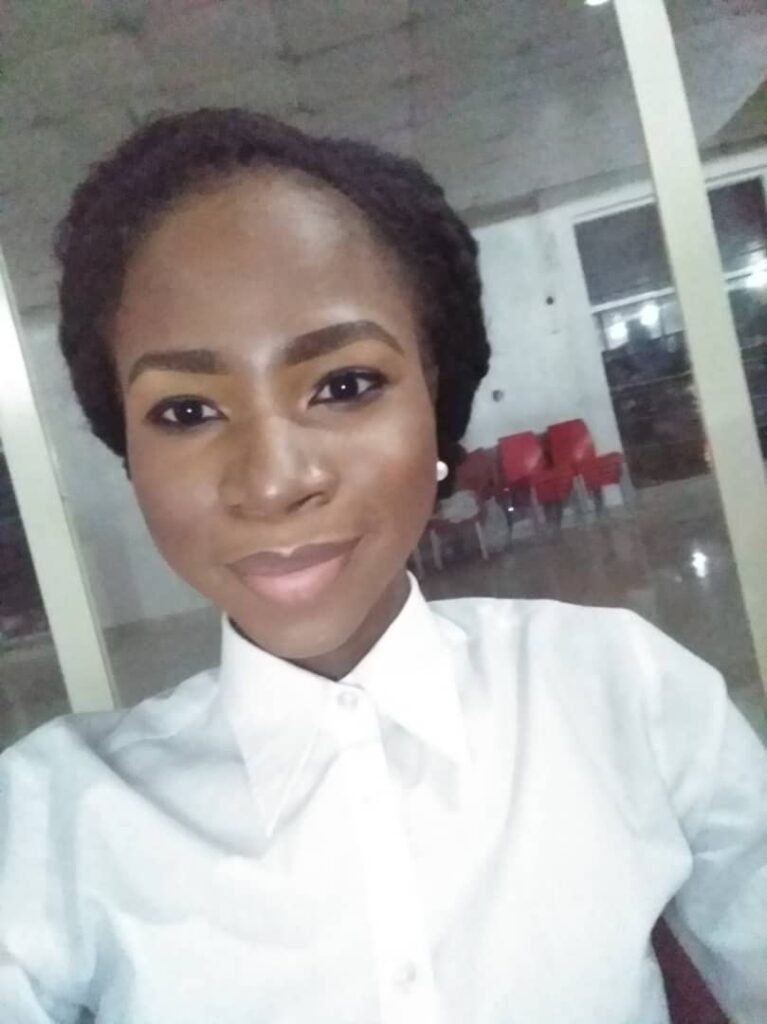
Being The President Of A Bar Association In My University, And Managing Everything I Do
I have always been multitasker. At a point, I thought it was a problem because it was difficult to face one thing and do it. When I was younger, when people said they wanted to be a this or that, I couldn’t say it because I had about 10 things in mind that I wanted to be and could be. I recently learnt that it’s not a defect. It’s a super power and super powers should be managed. I cut down on some things according to priority so anything I do now is because I consider it highly important. So, I don’t spread myself too thin but I do everything that I manage to do and do them excellently too.
By God’s grace and without being immodest, I can say that I am an excellent student. I have won 4 major academic excellence awards while in school, even with all the non-academic work that I do.
Something that has helped me which I cannot fail to mention is my journalling life. I am in love with my journals. I have about 3 journals now which I run at the same time. They serve different purposes. In my journals, I write my goals, tick the ones I’ve achieved; I write my fears and my challenges; I write my daily to-do lists. This makes me the boss of my time and life. When I complained to a friend about losing control of my time and I said I don’t have my time any more, he said, “24 hours are enough, Ikanna. Time is a gift from God. You don’t squander gifts”. That has stayed with me. That was how I developed my journal culture. I am in charge of my time. Even my friends know that they cannot barge into my schedules and distort my day’s plans. I live a highly organised life.
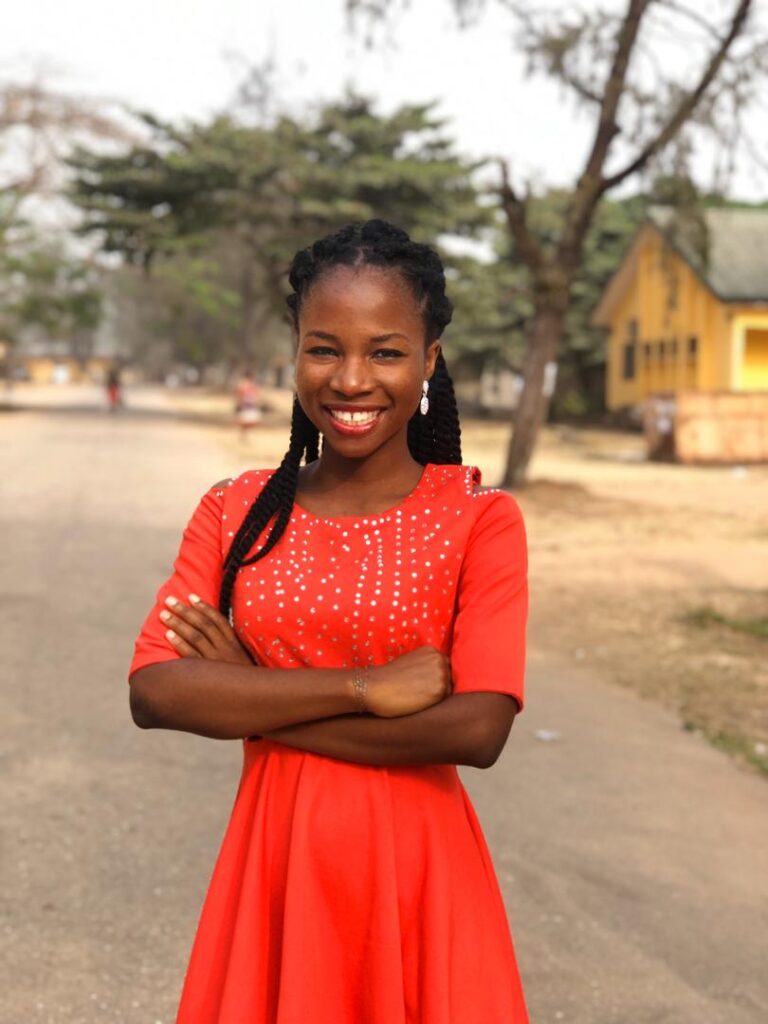
Challenges of my work
I do a lot of work – leading LAWSAN Bar, Teenagers at Teennation, No-FGM campaign, Authoring, Mentorship, School work, helping women and girls and so on; but I would like to talk about my work with girls. This is because my major challenge falls in here.
Working to help and protect girls involves a lot of emotions. By research, reaching out or following up a case, I get to interact with victims of abuse. Their stories cut through my heart. Imagine carrying the baggages of many helpless girls at a time. It could hurt and be so destabilizing. Sometimes, I just cry to relieve myself of some hurt. I also pray a lot. That has helped me. I’m a very spiritual person. I am born again in Christ. So I pray and receive the assurances that all will be well and that God has made me a solution provider.
My view of the legal system in Nigeria
We have a long way to go. I acknowledge how far we have come and the improvements made. I celebrate laws like the Discrimination Against Persons With Disabilities (Prohibition) Act, Violence Against Persons (Prohibition) Act and other ground-breaking laws which I have come to find useful in the course of my work.
However, the archaic nature of some procedures is worrisome. We need to be able to allow lawyers to start filing cases online from the lowest courts to the highest. My senior friends in other countries tell me how easy this is over there. There is a pandemic. This is enough reason to start putting those structures in place. Also, laws like the Evidence Act should be amended to reflect our present day digital realities.
Furthermore, many times in Nigeria, we have experienced sheer neglect of our laws. Why do we have laws if they would not be kept? We were taught that law is blind and so does not look at the person or his social class. But this is not true of the justice system in Nigeria today.
There’s a lot to complain about in the Nigerian legal system but I believe that there will be a change and the change has started.
3 Women Who Inspire Me To Be Better and Why
My three super women remain the same. I talk about them everywhere:
Dr. Utibe Alex-okoro. A medic and my big sister. She’s my only sister actually. I love the way she sets standards for me without speaking. She shows me how to live by doing it. My sister is not one to talk on and on about being strong. What she does is to be strong. I watch and learn.
Mmanti Umoh. I met her when I could not find my way around my long term goals. She came in and helped me through and has been my friend since then. Her life is a great example of walking on hot water to get to wherever you want to go. She inspires me to never give up.
Indra Nooyi, former CEO of Pepsi Co. I started following her last year and I’ve been a great follower since then. She represents the reality of women at the work place and succeeding nonetheless. I see her as the ideal woman in Sheryl Sandberg’s Lean In: Women, Work and the Will to Lead. That’s a book that changed my mind about many things. I want to meet Indra one day.
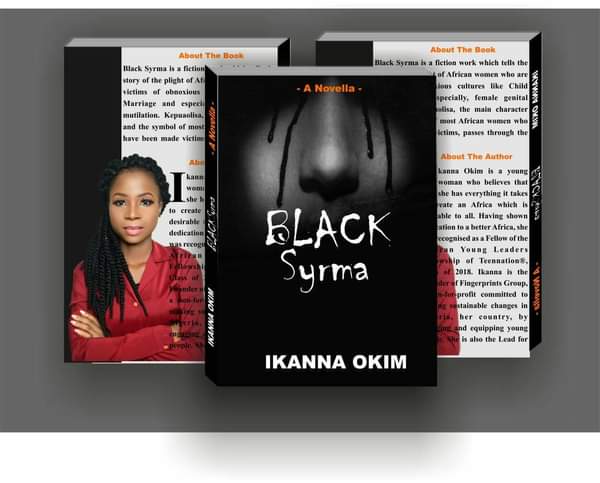
Being a Woman of Rubies
I am an outstanding woman. I can go on and on about what I have and what I have achieved but what makes me a woman of rubies is not all of that. It is the fact that there is no other person like me in this world. I am unique, with all my weaknesses too. My weaknesses are beautiful.
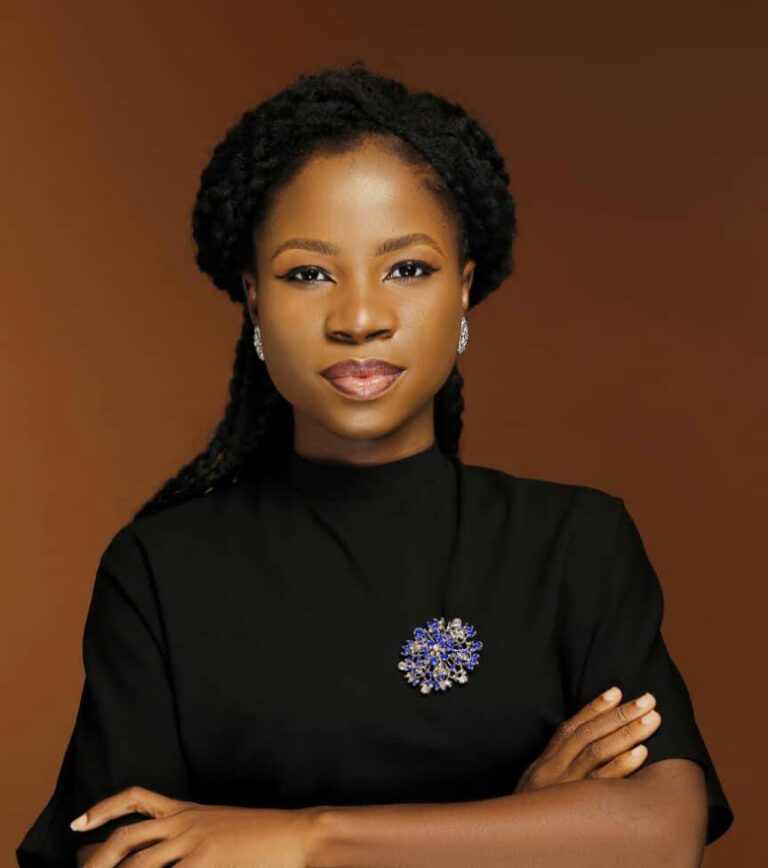
Comments are closed.